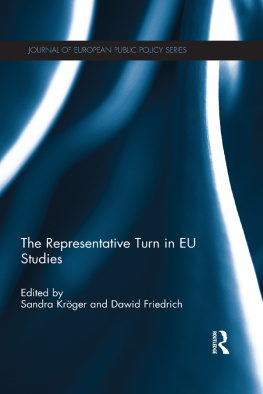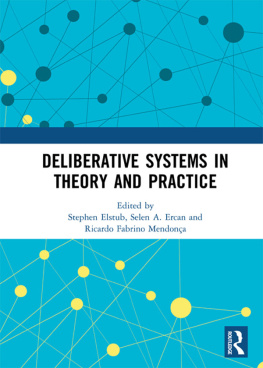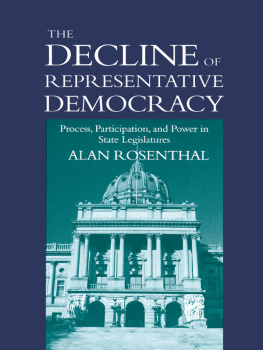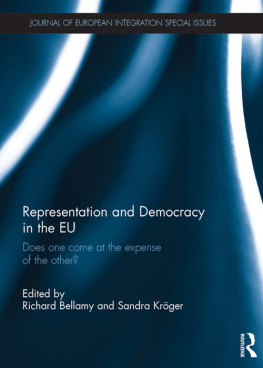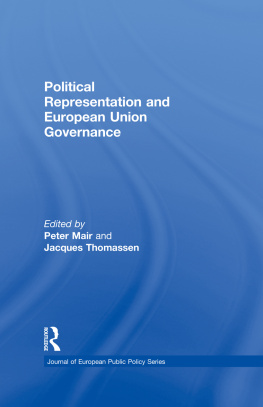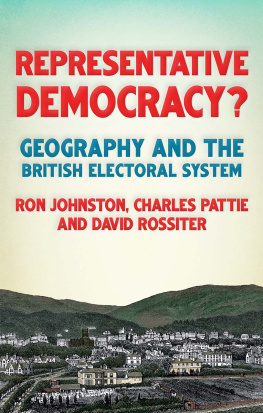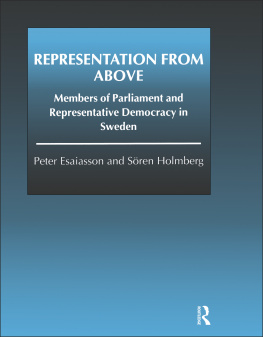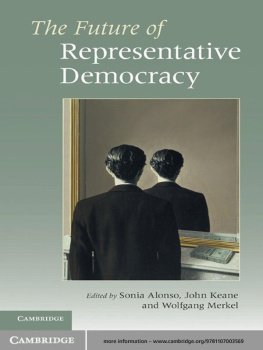The Representative Turn in EU Studies
After the participative and deliberative turns in both democratic theory and EU studies, we are currently witnessing a representative turn to which this volume contributes by addressing the relation between representation and democracy in the EU. Although in the Lisbon Treaty the EU conceives itself as a representative democracy, the meaning of this concept in a supranational polity is far from clear either in theory or practice. Instead, the historically contingent link between representation and democracy is today severely challenged by various processes of diversification at all levels of political action (national, regional, supranational). These processes challenge our understanding of representative democracy as involving electoral democracy within clearly delineated nation-states, provoking a situation in which new frontiers of representation develop. Consequently, it becomes increasingly difficult to provide normative standards as well as accurate assessments of democratic representation in the EU.
This volume addresses these core challenges of representative democracy in the EU from normative, theoretical and methodological perspectives.
This book was published as a special issue of the Journal of European Public Policy.
Sandra Krger is a lecturer in the politics department of the University of Exeter, UK.
Dawid Friedrich, is based at the Center for the Study of Democracy, Leuphana University Lneburg, Germany.
Journal of European Public Policy Series
Series Editor: Jeremy Richardson is a Professor at Nuffield College, Oxford University
This series seeks to bring together some of the finest edited works on European Public Policy. Reprinting from Special Issues of the Journal of European Public Policy, the focus is on using a wide range of social sciences approaches, both qualitative and quantitative, to gain a comprehensive and definitive understanding of Public Policy in Europe.
Towards a Federal Europe
Edited by Alexander H. Trechsel
The Disparity of European Integration
Edited by Tanja A. Brzel
Cross-National Policy Convergence: Causes Concepts and Empirical Findings
Edited by Christoph Knill
Civilian or Military Power?
European Foreign Policy in Perspective
Edited by Helene Sjursen
The European Union and New Trade Politics
Edited by John Peterson and Alasdair R. Young
Comparative Studies of Policy Agendas
Edited by Frank R. Baumgartner, Christoffer Green-Pedersen and Bryan D. Jones
The Constitutionalization of the European Union
Edited by Berthold Rittberger and Frank Schimmelfenig
Empirical and Theoretical Studies in EU Lobbying
Edited by David Coen
Mutual Recognition as a New Mode of Governance
Edited by Susanne K. Schmidt
France and the European Union
Edited by Emiliano Grossman
Immigration and Integration Policy in Europe
Edited by Tim Bale
Reforming the European Commission
Edited by Michael W. Bauer
International Influence Beyond Con-ditionality Postcommunist Europe after EU enlargement
Edited by Rachel A. Epstein and Ulrich Sedelmeier
The Role of Political Parties in the European Union
Edited by Bjrn Lindberg, Anne Rasmussen and Andreas Warntjen
EU External Governance Projecting EU Rules beyond Membership
Edited by Sandra Lavenex and Frank Schimmelfennig
EMU and Political Science What Have We Learned?
Edited by Henrik Enderlein and Amy Verdun
Learning and Governance in the EU Policy Making Process
Edited by Anthony R. Zito
Political Representation and EU Governance
Edited by Peter Mair and Jacques Thomassen
Europe and the Management of Globalization
Edited by Wade Jacoby and Sophie Meunier
Negotiation Theory and the EU The State of the Art
Edited by Andreas Dr, Gemma Mateo and Daniel C. Thomas
The Political Economy of Europes Incomplete Single Market
Edited by David Howarth and Tal Sadeh
The European Unions Foreign Economic Policies A Principal-Agent Perspective
Edited by Andreas Dr and Michael Elsig
The Politics of the Lisbon Agenda Governance Architectures and Domestic Usages of Europe
Edited by Susana Borrs and Claudio M. Radaelli
Agency Governance in the European Union
Edited by Berthold Rittberger and Arndt Wonka
The EU Timescape
Edited by Klaus H. Goetz and Jan-Hinrik Meyer-Sahling
The EUs Common Foreign and Security Policy
Edited by Helene Sjursen
Economic Patriotism in Open Economies
Edited by Ben Clift and Cornelia Woll
The Power of the European Court of Justice
Edited by Susanne K. Schmidt and R. Daniel Kelemen
Legislative Co-decision in the European Union
Edited by Anne Rasmussen, Charlotte Burns and Christine Reh
Frameworks of the European Unions Policy Process
Edited by Nikolaos Zahariadis
First published 2014
by Routledge
2 Park Square, Milton Park, Abingdon, Oxon OX14 4RN
Simultaneously published in the USA and Canada
by Routledge
711 Third Avenue, New York, NY 10017
Routledge is an imprint of the Taylor & Francis Group, an informa business
2014 Taylor & Francis
This book is a reproduction of the Journal of European Public Policy, vol. 20, issue 2. The Publisher requests to those authors who may be citing this book to state, also, the bibliographical details of the special issue on which the book was based.
All rights reserved. No part of this book may be reprinted or reproduced or utilised in any form or by any electronic, mechanical, or other means, now known or hereafter invented, including photocopying and recording, or in any information storage or retrieval system, without permission in writing from the publishers.
Trademark notice: Product or corporate names may be trademarks or registered trademarks, and are used only for identification and explanation without intent to infringe.
British Library Cataloguing in Publication Data
A catalogue record for this book is available from the British Library
ISBN13: 978-0-415-83602-9
Typeset in Times New Roman
by Taylor & Francis
Publishers Note
The publisher would like to make readers aware that the chapters in this book may be referred to as articles as they are identical to the articles published in the special issue. The publisher accepts responsibility for any inconsistencies that may have arisen in the course of preparing this volume for print.

